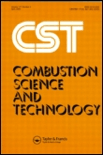
COMBUSTION SCIENCE AND TECHNOLOGY
Scope & Guideline
Bridging Disciplines in Combustion Technology
Introduction
Aims and Scopes
- Combustion Kinetics:
The journal publishes studies on the mechanisms and rates of combustion reactions, including detailed kinetic models and experimental investigations that elucidate the underlying chemical processes. - Emission Studies:
Research on the formation and reduction of pollutants such as NOx, CO, and particulate matter during combustion processes, with a focus on developing strategies for cleaner combustion technologies. - Fire Dynamics and Safety:
Papers addressing the behavior of flames, smoke, and heat release in various environments, including the impact of ventilation and materials on fire spread and smoke toxicity. - Innovative Combustion Technologies:
Exploration of new combustion technologies, including alternative fuels, advanced burner designs, and combustion enhancement techniques aimed at improving efficiency and reducing environmental impact. - Numerical and Experimental Methods:
The journal features research employing computational fluid dynamics (CFD), machine learning, and experimental methodologies to study combustion phenomena and optimize combustion systems. - Spontaneous Combustion and Fire Prevention:
Studies focused on the mechanisms, risks, and prevention strategies associated with spontaneous combustion, particularly in coal and biomass, as well as the development of effective fire retardants. - Thermal Decomposition and Pyrolysis:
Research on the thermal behavior of fuels and materials under various conditions, including pyrolysis kinetics and the production of valuable by-products from waste materials.
Trending and Emerging
- Sustainable and Alternative Fuels:
A significant increase in research dedicated to the combustion of sustainable and alternative fuels, including biomass, biogas, and hydrogen, highlighting the need for environmentally friendly energy sources. - Advanced Emission Control Technologies:
Emerging studies focus on innovative technologies and materials aimed at reducing emissions from combustion processes, driven by stricter environmental regulations and public health concerns. - Machine Learning and Data Analytics in Combustion:
The integration of machine learning and data-driven approaches in combustion research is rapidly growing, enabling more accurate modeling and optimization of combustion processes. - Fire Safety in Specific Environments:
There is an increasing emphasis on fire safety and combustion phenomena in unique environments, such as underground mining, historical buildings, and urban settings, indicating a broader application of combustion science. - Interdisciplinary Approaches in Combustion Research:
Research increasingly incorporates interdisciplinary methods, combining insights from materials science, thermodynamics, and environmental science to tackle complex combustion challenges.
Declining or Waning
- Traditional Fossil Fuel Combustion:
There is a noticeable decrease in studies focused solely on traditional fossil fuel combustion processes, as research increasingly shifts towards alternative fuels and cleaner combustion technologies. - Low-temperature Combustion Studies:
Research on low-temperature combustion, while still relevant, has seen a reduction in focus compared to the growing interest in high-efficiency and high-temperature combustion technologies. - Basic Combustion Phenomena:
The exploration of fundamental combustion phenomena, such as simple flame structures and basic flame dynamics, appears to be receiving less attention in favor of more complex systems and applications. - Conventional Fire Safety Approaches:
There is a declining emphasis on conventional fire safety measures, as modern research trends towards innovative technologies and materials for fire prevention and suppression.
Similar Journals
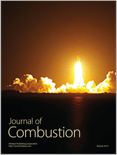
Journal of Combustion
Transforming Insights into Combustion BreakthroughsJournal of Combustion is a premier academic journal dedicated to the field of combustion science and technology, published by HINDAWI LTD. With an ISSN of 2090-1968 and an E-ISSN of 2090-1976, the journal has been an open-access platform since 2008, ensuring that cutting-edge research is accessible to all. Based in the United States at Adam House, 3rd Flr, 1 Fitzroy Sq, London W1T 5HF, England, the journal publishes articles spanning various relevant disciplines, contributing to knowledge in Chemical Engineering, Fuel Technology, and Energy Engineering. As of 2023, it ranks in the Q3 quartile in Chemical Engineering (miscellaneous) and Fuel Technology, and in Q4 in Condensed Matter Physics and Energy Engineering and Power Technology, highlighting its growing impact and relevance in these fields. Researchers will find valuable insights as the journal converges its findings from 2010 to 2024. With a focus on promoting innovative approaches and exploring new frontiers in combustion research, the Journal of Combustion continues to be an essential resource for academics, professionals, and students committed to advancing the understanding and application of combustion processes.

Russian Journal of Physical Chemistry B
Pioneering research in chemical science.Russian Journal of Physical Chemistry B, published by MAIK NAUKA/INTERPERIODICA/SPRINGER, serves as a vital platform for the dissemination of novel research in the field of physical and theoretical chemistry. With an ISSN of 1990-7931 and an E-ISSN of 1990-7923, this journal has established itself in the academic landscape since its inception in 2008, continuing to publish groundbreaking studies that push the boundaries of chemical research through 2024. Ranked in the Q3 category in Physical and Theoretical Chemistry, it holds a Scopus Rank of 139/189, showcasing its significance despite a competitive field. The journal does not currently offer open access but remains dedicated to advancing knowledge and innovation within its niche, fostering collaboration among chemists, researchers, and educators. As a valuable resource for those seeking to stay abreast of the latest developments and theoretical advancements, the Russian Journal of Physical Chemistry B is an excellent choice for professionals and students alike.
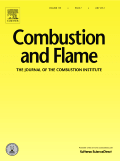
Combustion and Flame
Leading the Charge in Combustion ResearchCombustion and Flame is a premier academic journal published by Elsevier Science Inc, dedicated to advancing the field of combustion science. Since its inception in 1957, this journal has consistently provided a platform for rigorous research and groundbreaking discoveries in the realms of Chemical Engineering, Chemistry, and Energy Engineering, illustrating a significant Q1 ranking across multiple categories, including Fuel Technology and Physics. With an impressive Scopus ranking, comprising the top 10% in fields such as General Physics and Astronomy, and General Chemical Engineering, Combustion and Flame serves as a critical resource for researchers, professionals, and students aiming to explore the complexities of combustion phenomena and their applications. Although it does not offer open access, the journal is known for its comprehensive articles and innovative research papers, fostering scholarly dialogue and the development of emerging technologies. The journal aims to connect researchers globally, ensuring that important findings are shared and disseminated effectively.
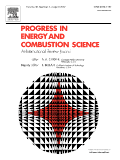
PROGRESS IN ENERGY AND COMBUSTION SCIENCE
Fueling the future with cutting-edge research.PROGRESS IN ENERGY AND COMBUSTION SCIENCE, published by PERGAMON-ELSEVIER SCIENCE LTD, stands as a premier journal in the realms of energy engineering and fuel technology, with an impressive impact factor and recognition across multiple scientific disciplinary matrices. Since its inception in 1975 and continuing through 2024, this esteemed publication has contributed significantly to the advancement of knowledge in energy resources, combustion processes, and their applications in modern technology. With a robust ranking of Q1 in key categories such as Chemical Engineering, Energy Engineering and Power Technology, and Fuel Technology, the journal consistently showcases high-quality research that influences both academia and industry. Researchers, professionals, and students benefit from its rigorous peer-reviewed articles, which foster a deeper understanding of energy-related challenges and innovations. Although it is not an Open Access outlet, its relevance and contribution to the scientific community are undeniable, making it a vital resource for anyone engaged in the pursuit of sustainable energy solutions.

JOURNAL OF ENGINEERING PHYSICS AND THERMOPHYSICS
Bridging Physics and Engineering for a Sustainable FutureJOURNAL OF ENGINEERING PHYSICS AND THERMOPHYSICS, published by Springer, is a vital resource for researchers and professionals in the fields of engineering physics and thermophysics. With an ISSN of 1062-0125 and an E-ISSN of 1573-871X, this esteemed journal has been disseminating high-quality research since its inception, covering critical advancements in both condensed matter physics and various engineering disciplines. Despite its classification within the third quartile in both Scopus categories for 2023, the journal remains a significant conduit for innovative studies that push the boundaries of knowledge in thermal and physical engineering, with converged years spanning from 1992 to 1997 and 2004 to 2024. The journal does not offer open access, which means subscribers and institutions have exclusive access to its rich content. As the field continues to evolve, JOURNAL OF ENGINEERING PHYSICS AND THERMOPHYSICS plays an essential role in fostering scholarly discussions and supporting the academic community in tackling contemporary engineering challenges.

COMBUSTION EXPLOSION AND SHOCK WAVES
Charting New Territories in Explosions and Shock WavesCOMBUSTION EXPLOSION AND SHOCK WAVES, published by MAIK NAUKA/INTERPERIODICA/SPRINGER, is a peer-reviewed journal that has been a cornerstone in the fields of combustion science and shock wave dynamics since its inception in 1965. With a broad scope encompassing chemical engineering, energy technology, and physics, this journal plays a pivotal role in disseminating groundbreaking research that drives advancements in both theory and application. Despite its classification in the third quartile across several categories as of 2023, the journal continues to attract contributions that address critical challenges and innovations in combustion-related phenomena. Researchers and professionals across multiple disciplines are encouraged to submit their findings, as the journal provides a valuable platform for sharing knowledge and fostering collaboration. The editorial board is committed to maintaining high standards of quality and relevance, which is reflected in its ongoing influence in these interdisciplinary and rapidly evolving fields. While the journal is not open access, it offers a wealth of insights and scholarly work that is vital for both academic inquiry and practical applications. From the vibrant heart of New York City, COMBUSTION EXPLOSION AND SHOCK WAVES aims to inspire and inform, serving as an essential resource for those dedicated to understanding and innovating in the realm of combustion science.
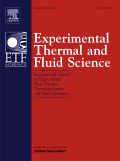
EXPERIMENTAL THERMAL AND FLUID SCIENCE
Elevating thermal and fluid science with impactful research.EXPERIMENTAL THERMAL AND FLUID SCIENCE is a prestigious academic journal published by Elsevier Science Inc, dedicated to advancing the fields of thermal and fluid sciences. With a strong focus on innovative experimental research, it plays a crucial role in disseminating new knowledge and techniques across multiple domains, including Aerospace Engineering, Chemical Engineering, Fluid Flow and Transfer Processes, Mechanical Engineering, and Nuclear Engineering. Holding a notable impact factor and ranking in the Q1 quartile across these categories since 2023, the journal is recognized for its high-quality contributions, which appeal to a diverse audience of researchers, industry professionals, and students alike. Additionally, with dedicated coverage from its inception in 1988 to projections extending through 2025, EXPERIMENTAL THERMAL AND FLUID SCIENCE provides a vital platform for sharing advancements in experimental techniques and findings that shape the future of engineering and applied sciences.

THERMAL ENGINEERING
Transforming Thermal Engineering for Tomorrow's ChallengesTHERMAL ENGINEERING is a premier journal dedicated to advancing the field of thermal engineering, with particular importance in the domains of Energy Engineering, Nuclear Energy, and Power Technology. Published by PLEIADES PUBLISHING INC, this esteemed journal has been providing significant scholarly contributions since its inception, with its converged years spanning from 1970 to 2024. Though currently non-open access, the journal presents a unique avenue for researchers, professionals, and students to explore groundbreaking research and innovative solutions related to energy systems and thermal processes. With a notable impact factor and positioned in the Q3 quartile for both Energy Engineering and Nuclear Energy, THERMAL ENGINEERING ensures the dissemination of high-quality research with a global reach, making it an essential resource for those looking to stay at the forefront of essential energy technologies and engineering advancements.

ISI Bilimi ve Teknigi Dergisi-Journal of Thermal Science and Technology
Unveiling Breakthroughs in Thermal MethodologiesISI Bilimi ve Teknigi Dergisi-Journal of Thermal Science and Technology, published by the Turkish Society of Thermal Sciences and Technology, serves as a pivotal platform for disseminating cutting-edge research in the fields of thermal science, engineering, and materials science. With an ISSN of 1300-3615, this journal not only addresses critical advancements from 2008 to 2013 and 2015 to 2023, but also operates under the auspices of rigorous peer review, contributing to its reputable standing in academia. As a Q4 ranked journal in various disciplines including Atomic and Molecular Physics, Engineering, and Materials Science, it offers researchers and professionals essential insights, though it does not currently operate under an open access model. Situated in Ankara, Turkey, this journal is key to fostering collaboration and innovation among scholars, making it an indispensable resource for students and professionals eager to engage with the latest thermal science methodologies and technologies.
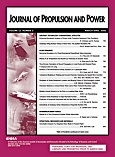
JOURNAL OF PROPULSION AND POWER
Advancing the Frontiers of Aerospace InnovationJOURNAL OF PROPULSION AND POWER, published by the American Institute of Aeronautics and Astronautics, is a premier peer-reviewed journal dedicated to the advancement of knowledge in the fields of aerospace engineering, mechanical engineering, and fuel technology. With an impressive impact factor and ranked in the Q1 and Q2 categories for various relevant fields, the journal serves as a vital resource for researchers, professionals, and students alike who are looking to stay abreast of the latest innovations and breakthroughs in propulsion systems and power generation methodologies. Established in 1985, the journal covers a wide range of topics, ensuring a comprehensive understanding of propulsion technologies from atmospheric to space applications. Its robust Scopus rankings highlight its significance in the academic community, establishing it as a leading forum for sharing pivotal research findings and fostering collaborative dialogues that drive the aerospace industry forward. Located in Reston, Virginia, the journal does not currently offer open access options, yet it remains accessible to a vast audience via academic institutions and libraries. As we move further into the 21st century, the JOURNAL OF PROPULSION AND POWER continues to be an indispensable tool for the exploration and evolution of propulsion and power systems.